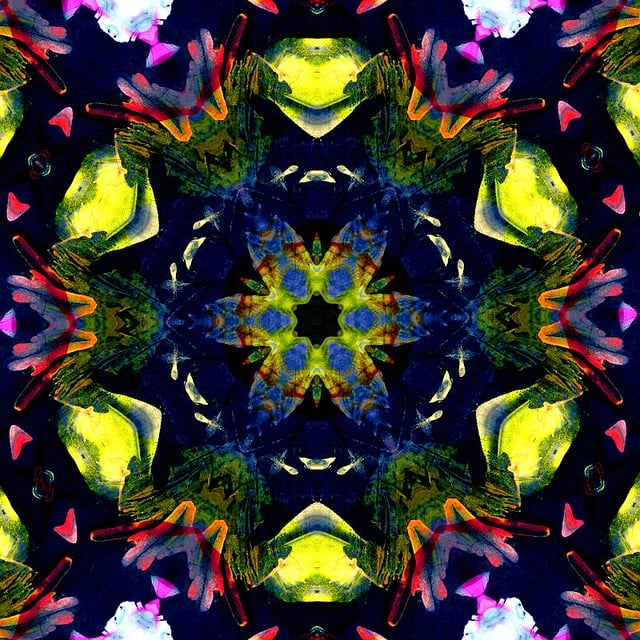
Hey there! Have you ever wondered if Reiki is a spiritual practice? It’s a valid question, and one that a lot of people have asked. Well, the short answer is, yes, Reiki can definitely be considered a spiritual practice. But let me tell you more about it in detail in this article.
Reiki, in its essence, is a Japanese healing technique that involves the transfer of energy through the practitioner’s hands to promote physical and emotional healing. It is based on the belief that there is a life force energy that flows within us and is what keeps us alive. This energy can become imbalanced or blocked, leading to physical or emotional ailments. Reiki works to restore the balance and flow of this energy.
Now, when we talk about Reiki as a spiritual practice, it goes beyond just the physical healing aspect. Reiki practitioners often cultivate a deep connection to their own spirituality, whatever that may be. It is a practice that encourages and supports personal growth, self-awareness, and connection to something greater than ourselves.
In this article, we’ll delve deeper into the spiritual aspects of Reiki and explore how it can be used as a tool for spiritual development. So, if you’re curious to learn more about the spiritual side of Reiki, keep reading!
What is Reiki?
Definition of Reiki
Reiki is a form of energy healing that originated in Japan in the early 20th century. The word “Reiki” can be translated as “universal life force energy,” which refers to the subtle and powerful energy that flows through all living beings. Reiki practitioners believe that this energy can be accessed and channeled to promote physical, emotional, and spiritual healing.
Origins of Reiki
Reiki was developed by Mikao Usui, a Japanese Buddhist monk, in the early 1900s. Usui sought a way to heal others and achieve personal spiritual growth, leading him to embark on a journey of self-discovery and enlightenment. Through meditation and fasting, he claimed to have received a divine revelation that led to the development of Reiki as a healing practice.
Principles of Reiki
Reiki encompasses a set of principles that guide practitioners in their practice. These principles, known as the Five Reiki Principles or the Five Reiki Precepts, serve as a moral and spiritual code for living a balanced and harmonious life. They are:
- Just for today, I will not be angry.
- Just for today, I will not worry.
- Just for today, I will be grateful.
- Just for today, I will do my work honestly.
- Just for today, I will be kind to every living thing.
These principles emphasize the importance of mindfulness, gratitude, honesty, and compassion, both in the context of Reiki practice and in everyday life.
Spirituality and Reiki
Understanding spirituality
Before delving into the connection between Reiki and spirituality, it is crucial to understand what spirituality means. Spirituality refers to one’s relationship with the sacred or the divine, and it often involves the exploration and connection with a higher power or a transcendent aspect of existence. It encompasses beliefs, values, practices, and experiences that give meaning and purpose to life beyond the material realm.
Connection between Reiki and spirituality
Reiki is deeply intertwined with spirituality. Practitioners believe that Reiki is not merely a technique but a spiritual path and a way of life that connects them to their higher self, others, and the divine. Through the practice of Reiki, individuals can tap into the universal life force energy and align themselves with the flow of this energy, thus promoting physical, emotional, and spiritual healing.
Role of spirituality in Reiki practice
Spirituality plays a vital role in Reiki practice. The foundational belief is that there is a spiritual aspect to healing, and by connecting with the divine energy, practitioners can facilitate healing on multiple levels. Reiki practitioners often engage in spiritual practices such as meditation, prayer, and self-reflection to deepen their connection with the divine and enhance their ability to heal themselves and others.

Components of Reiki Practice
Techniques and hand positions in Reiki
Reiki practice involves specific techniques and hand positions that facilitate the channeling of energy. During a Reiki session, the practitioner places their hands lightly on or above the recipient’s body, allowing the energy to flow through their hands into the recipient’s energy field. Various hand positions are used to target different areas of the body, promoting balance and healing.
Importance of meditation in Reiki
Meditation is an integral part of Reiki practice. It serves as a means to quiet the mind, cultivate inner peace, and deepen the connection with the universal life force energy. By incorporating meditation into their daily routine, Reiki practitioners can enhance their ability to channel and direct energy, as well as cultivate a greater sense of awareness and presence.
Energy healing in Reiki
Energy healing is a fundamental aspect of Reiki practice. Reiki practitioners believe that illness and imbalance are caused by disruptions or blockages in the flow of energy. By channeling Reiki energy into the recipient’s energy field, practitioners aim to remove these blockages and restore the natural flow of energy, promoting healing on physical, emotional, and spiritual levels.
Spiritual Benefits of Reiki
Stress reduction and relaxation
One of the primary spiritual benefits of Reiki is stress reduction and relaxation. The deep sense of calm and tranquility experienced during and after a Reiki session can help individuals let go of stress, anxiety, and tension. This state of relaxation allows for greater spiritual connection and the opportunity for self-reflection and introspection.
Enhanced spiritual connection
Reiki can enhance one’s spiritual connection by helping individuals tap into their inner wisdom and intuition. Through the practice of Reiki, individuals can develop a closer relationship with their higher self, the divine, and the interconnectedness of all things. This heightened spiritual connection can promote a sense of purpose, clarity, and profound inner peace.
Increased intuition and insight
Reiki practice has been known to enhance intuition and insight. As individuals deepen their connection with the universal life force energy, they may develop a heightened awareness and a greater ability to trust their intuition. This enhanced intuition can guide individuals in making decisions aligned with their highest good and spiritual growth.

Reiki as a Healing Practice
Understanding healing energy in Reiki
Central to Reiki practice is the belief in the healing power of energy. Reiki practitioners view energy as a vital force that animates all living beings and is capable of bringing about healing and restoration. By channeling and directing this energy, practitioners aim to remove energy blockages and stimulate the body’s natural healing response.
Physical and emotional healing through Reiki
Reiki can facilitate physical and emotional healing by addressing the root causes of illness or imbalance. By working with the energetic aspects of the body, Reiki can help release stagnant or negative energy, promote energy flow, and support the body’s innate healing abilities. Reiki can be used alongside conventional medical treatments to complement and enhance the healing process.
Reiki’s impact on overall well-being
Reiki’s impact on overall well-being extends beyond physical and emotional healing. The spiritual aspect of Reiki practice can contribute to a profound sense of well-being by promoting a deeper connection with oneself, others, and the divine. This connection can lead to increased self-awareness, inner peace, and a greater sense of purpose and fulfillment in life.
Reiki and Personal Growth
Self-reflection and self-awareness in Reiki
Reiki practice encourages self-reflection and self-awareness as individuals engage in regular meditation, introspection, and self-healing. Through self-reflection, practitioners gain insight into their thoughts, emotions, beliefs, and patterns of behavior, allowing for personal growth and transformation. This self-awareness provides the foundation for healing and spiritual development.
Promoting personal growth and transformation
Reiki practice can be a catalyst for personal growth and transformation. The process of working with energy and engaging in spiritual practices can lead to a deepening of self-understanding, increased compassion, and a more authentic expression of one’s true self. Reiki practitioners often experience profound shifts in their perception, priorities, and overall approach to life.
Reiki as a tool for spiritual development
Reiki serves as a powerful tool for spiritual development, helping individuals cultivate spiritual awareness, expand their consciousness, and deepen their connection with the divine. The regular practice of Reiki can support individuals on their spiritual journey, providing them with a framework for personal growth, self-discovery, and the exploration of higher states of consciousness.
Reiki and Faith
Exploring compatibility with different belief systems
Reiki is often compatible with various belief systems and can be practiced by individuals of different religious and spiritual backgrounds. While Reiki originated in Japan, it is not tied to any specific religion or belief system. It can complement and enhance existing faith-based practices without conflicting with them.
Respect for diverse religious and spiritual practices
Reiki practitioners respect and honor diverse religious and spiritual practices. They recognize that individuals may have different beliefs and approaches to spirituality, and they encourage practitioners to incorporate Reiki into their existing practices in a way that aligns with their personal beliefs and values.
Reiki as a complement to faith-based practices
For individuals who embrace a faith-based perspective, Reiki can enhance their spiritual journey. Reiki can deepen their connection with their Higher Power, facilitate healing, and provide a framework for personal growth. Reiki can be viewed as a spiritual practice that complements and supports existing belief systems, rather than conflicting with them.
Controversies Surrounding Reiki
Scientific skepticism and criticism
Reiki has faced skepticism and criticism from the scientific community who argue that the efficacy of Reiki cannot be substantiated through empirical evidence or scientific studies. Critics often point out the lack of controlled studies and the difficulty in measuring the energy or healing effects attributed to Reiki.
Debates on energy healing and spirituality
The debates surrounding Reiki often revolve around the nature of energy healing itself and the spiritual aspects associated with it. Skeptics argue that energy healing is pseudoscientific and lacks a solid foundation in scientific principles. While supporters argue that there is a subjective, experiential aspect to energy healing that cannot be easily measured or quantified.
Separating Reiki from New Age beliefs
Reiki has sometimes been associated with New Age beliefs and practices, which can further fuel controversy and skepticism. However, it is important to note that Reiki itself is not inherently tied to any particular belief system or New Age ideologies. Reiki can be practiced and experienced in a way that is separate from any specific spiritual or philosophical framework.
Discussion: Reiki’s Place in Spiritual Practices
Perspectives on Reiki’s spiritual nature
Reiki practitioners and those who have experienced its benefits often view Reiki as a deeply spiritual practice. They believe that Reiki provides a pathway for connecting with the divine and accessing universal life force energy for healing and personal growth. Reiki’s spiritual nature is often described as a way to tap into a higher power, cultivate inner peace, and expand consciousness.
Experiences and testimonies from practitioners
Many Reiki practitioners have shared their personal experiences and testimonies regarding the spiritual aspects of Reiki. They often describe a profound sense of connection, inner peace, and expanded awareness that they attribute to their Reiki practice. These experiences suggest that Reiki can serve as a bridge between the physical and spiritual realms, facilitating healing and personal transformation.
Comparisons with other spiritual practices
Reiki is sometimes compared to other spiritual practices such as meditation, yoga, and qigong, as they all involve the cultivation and harnessing of energy for healing and spiritual growth. Each practice offers unique benefits and approaches, yet they share the common goal of enhancing well-being and promoting inner harmony.
Conclusion
Acknowledging Reiki’s spiritual aspects
In conclusion, Reiki can be understood as a spiritual practice due to its emphasis on connecting with universal life force energy, promoting healing on multiple levels, and nurturing personal growth and transformation. While the scientific community may remain skeptical, countless individuals have experienced the spiritual benefits of Reiki and recognize its potential as a complementary tool for personal and spiritual development.
Recognizing its potential for personal and spiritual growth
Reiki offers individuals an opportunity to deepen their connection with themselves, others, and the divine. By engaging in Reiki practice, individuals can experience stress reduction, enhanced spiritual connection, increased intuition, and overall well-being. Reiki serves as a catalyst for personal and spiritual growth, supporting individuals on their journey toward self-discovery and higher states of consciousness.
Embracing the connection between Reiki and spirituality
As more individuals explore the realm of alternative healing practices, it becomes increasingly important to acknowledge and embrace the connection between Reiki and spirituality. By recognizing Reiki as a spiritual practice, we can open ourselves to the potential for healing, personal growth, and a deeper understanding of the interconnectedness of all things. Whether one approaches Reiki from a religious or secular perspective, its spiritual nature can offer profound benefits and insights into the nature of existence and our place within it.









